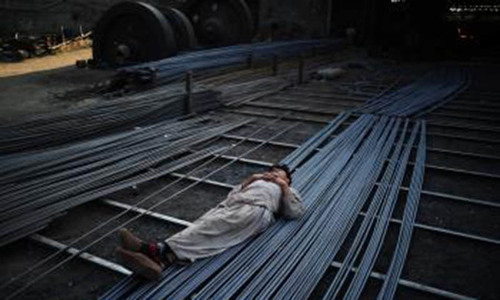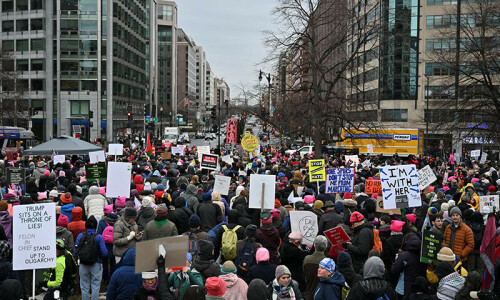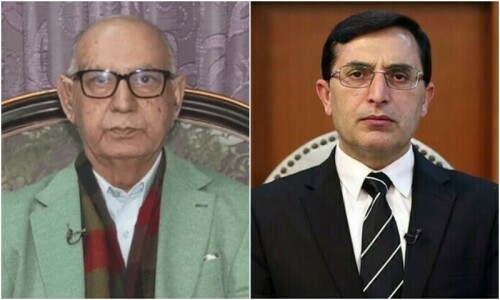ISLAMABAD: The Supreme Court’s 2006 annulment of the sale of the Pakistan Steel Mills (PSM) will again be the focus of attention when a nine-judge larger bench will take up on Tuesday a restoration application aimed at reviving a challenge to the verdict.
Headed by Chief Justice Mian Saqib Nisar, the larger bench will consist of Justice Asif Saeed Khosa, Justice Ejaz Afzal Khan, Justice Dost Mohammad Khan, Justice Umar Ata Bandial, Justice Maqbool Baqar, Justice Faisal Arab, Justice Ijaz-ul-Ahsan and Justice Sajjad Ali Shah.
The restoration application was moved by Arif Habib Securities of Pakistan.
On June 23, 2006, a nine-judge Supreme Court bench headed by then chief justice Iftikhar Mohammad Chaudhry had invalidated the privatisation of the PSM to a three-party consortium by holding the $362 million transaction with Russian-Saudi-Pakistani investors null and void.
A bench headed by former chief justice invalidated privatisation of PSM in 2006
The judgement had been issued on a petition moved by Barrister Zafarullah Khan of the Watan Party, who had challenged the sale of 75 per cent stake and handing over of the management control of PSM to the then consortium comprising Russian Magnitogorsk, Saudi Al Tuwariqi and Arif Habib Securities.
Tracing the history, senior counsel Khalid Anwar, who filed the restoration application on behalf of Arif Habib Securities, told Dawn that soon after the judgement against the divestment of the steel mills, he had moved a petition some time in 2006 seeking review of the Supreme Court’s June 23, 2006 verdict.
He said the review petition had been kept pending until the time he sought general adjournment to leave for England in July that year.
“My application seeking general adjournment was accepted by the then chief justice,” the counsel recalled, adding that the moment he left the country the review petition had been fixed before a nine-judge SC larger bench and heard.
Consequently, he said, the review petition had been dismissed for non-prosecution as he could not argue the matter since he was in the United Kingdom.
Against that SC decision of rejecting the review petition, the counsel explained, he again moved a restoration application in the court with a plea to resurrect the review petition — an application that gathers dust until now when it was being fixed for Tuesday for hearing.
When asked why he had instituted the review petition against the court judgement in which the government was accused of showing “indecent haste” in selling the steel mills, the counsel said the decision was unsubstantiated which resulted in a loss of over Rs177 billion to the national economy.
Therefore, he said, “we have pleaded before the court through our review petition to reverse the decision because no illegality could be found in the privatisation of the steel mills”.
In its 2006 judgement, the Supreme Court had held that the Privatisation Commission Ordinance 2000 was not against the Constitution, but the process of steel mills’ privatisation stood vitiated by acts of omissions and commissions on the part of certain state functionaries reflecting violation of mandatory provisions of the law and rules.
However, the judgement conceded that the approval for the privatisation of PSM by the Council of Common Interests on May 29, 1997, continued to hold the field.
On illegalities, the judgement highlighted that the prequalified parties — Arif Habib Group of Companies and Al-Tuwariqi Group of Companies — had entered into a consortium before the bidding process, but the third party — Magnitogorsk Iron and Steel Works, Russia — had joined hands with the consortium on the bidding day.
Since the bid offered by this consortium was found to be higher than the bid of other competitors, it was accepted and the letter of acceptance was issued the same day i.e. March 31, 2006, followed by the agreement on April 24.
Published in Dawn, March 5th, 2018















































